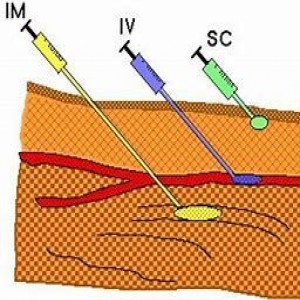 Welcome
Welcome
“May all be happy, may all be healed, may all be at peace and may no one ever suffer."
Incepta Pharmaceuticals Ltd.
Intasone 100mg / 2ml

Generic for Diseases
- Atopic dermatitis (eczema)
- Acute asthma
- Acute lupus erythematosus
- Adrenocortical insufficiency
- Allergic anaphylactic shock
- Allergic and inflammatory disorders
- Allergies
- Anaphylactic shock
- Asthma
- Bacterial septicemia
- Cervicitis and proctitis
- Colitis
- Congenital adrenal hyperplasia
- Corticosteroid-responsive dermatoses
- Drug hypersensitivity reactions
- Drug-induced photosensitivity
- Eye infections
- Haemorrhoids (piles)
- Hypersensitivity reactions
- Insect bites
- Intertrigo
- Joint inflammations
- Joint stiffness
- Myxoedema coma
- Occular infection
- Rheumatic disorders
- Shock
- Skin infections
- Soft tissue inflammation
- Status asthmaticus
- Thyroid storm
- Transfusion reactions
- Trichinellosis
Hydrocortisone inhibits prostaglandin synthesis by inhibiting the enzyme phospholipase A2. Hydrocortisone reduces various vasoactive agents released during inflammation. It also controls the rate of protein synthesis.
Hydrocortisone is indicated for use in the following conditions:
- Primary or secondary adrenocortical insufficiency
- Acute adrenocortical insufficiency
- Shock unresponsive to conventional therapy
- Congenital adrenal hyperplasia
- Hypercalcemia associated with cancer
- Nonsuppurative thyroiditis
- Rheumatic Disorders
- Dermatologic Diseases (Allergic States, Severe seborrheic dermatitis, Severe psoriasis, Pemphigus, Severe erythema multiforme)
- Control of severe or incapacitating allergic conditions (Bronchial asthma, Contact dermatitis, Atopic dermatitis, Serum sickness, Seasonal or perennial allergic rhinitis, Drug hypersensitivity reactions, Urticarial transfusion reactions, Acute noninfectious laryngeal edema)
- Ophthalmic Diseases (Herpes zoster ophthalmicus, Iritis, iridocyclitis, Chorioretinitis, Diffuse posterior uveitis and choroiditis, Optic neuritis)
- Gastrointestinal Diseases
- Fulminating or disseminated pulmonary tuberculosis when used concurrently with appropriate antituberculous chemotherapy
- Loeffler's syndrome
- Aspiration pneumonitis
- Hematologic Disorders (Acquired, autoimmune hemolytic anemia, Idiopathic thrombocytopenic purpura in adults, Secondary thrombocytopenia, Erythroblastopenia)
- Neoplastic Diseases (Leukemias and lymphomas in adults, Acute leukemia of childhood)
- Edematous States
- Acute exacerbations of multiple sclerosis
Tablet: The initial dosage of Hydrocortisone Tablets may vary from 20 mg to 240 mg of hydrocortisone per day depending on the specific disease entity being treated. In situations of less severity, lower doses will generally suffice, while in selected patients higher initial doses may be required. The initial dosage should be maintained or adjusted until a satisfactory response is noted. If after a reasonable period of time there is a lack of satisfactory clinical response, Hydrocortisone Tablets should be discontinued and the patient transferred to other appropriate therapy.
It should be emphasized that dosage requirements are variable and must be individualized on the basis of the disease under treatment and the response of the patients. After a favorable response is noted, the proper maintenance dosage should be determined by decreasing the initial drug dosage in small decrements at appropriate time intervals until the lowest dosage which will maintain an adequate clinical response. It should be kept in mind that constant monitoring is needed in regard to drug dosage. If, after long-term therapy the drug is to be stopped, it is recommended that it be withdrawn gradually, rather than abruptly.
Injection:
- Adult: By IM injection or slow IV injection or infusion. The initial dose of Hydrocortisone sterile powder is 100 mg to 500 mg, depending on the severity of the condition. This dose may be repeated at intervals of 2, 4 or 6 hours as indicated by the patient's response and clinical condition.
- Children: By slow IV injection, up to 1 year 25 mg, 1-5 years 50 mg, 6-12 years 100 mg.
Hydrocortisone is contraindicated in severe systemic fungal infections and patients with known hypersensitivity to any component of this product.
Hydrocortisone is generally well tolerated except in prolonged high doses. It may cause cardiac arrhythmia, esophageal candidiasis, menstrual irregularity, decreased carbohydrate & glucose tolerance, fluid retention, increased appetite, weight gain, euphoria, mood swings, depression, insomnia, acne etc.
Hydrocortisone should be used with caution in patients with a history of peptic ulceration as it increases the incidence of peptic ulceration. This drug should be used with caution in patients with congestive heart failure, hypertension, glaucoma, diabetic mellitus and epilepsy.
Pregnancy & Lactation
This should be prescribed in pregnancy and lactation only if absolutely required.
Intasone 100mg / 2ml and more Available Brands
PEG-Filastin 6mg / 0.6m...
Joinix D 750mg + 50...
Barcavir 1mg
Dasacent 100mg
Paloxiron 0.075mg /...
Betastin 1.50%
Somopin 6mg
Betaderm 0.10%
...
To be happy, beautiful, healthy, wealthy, hale and long-lived stay with DM3S.